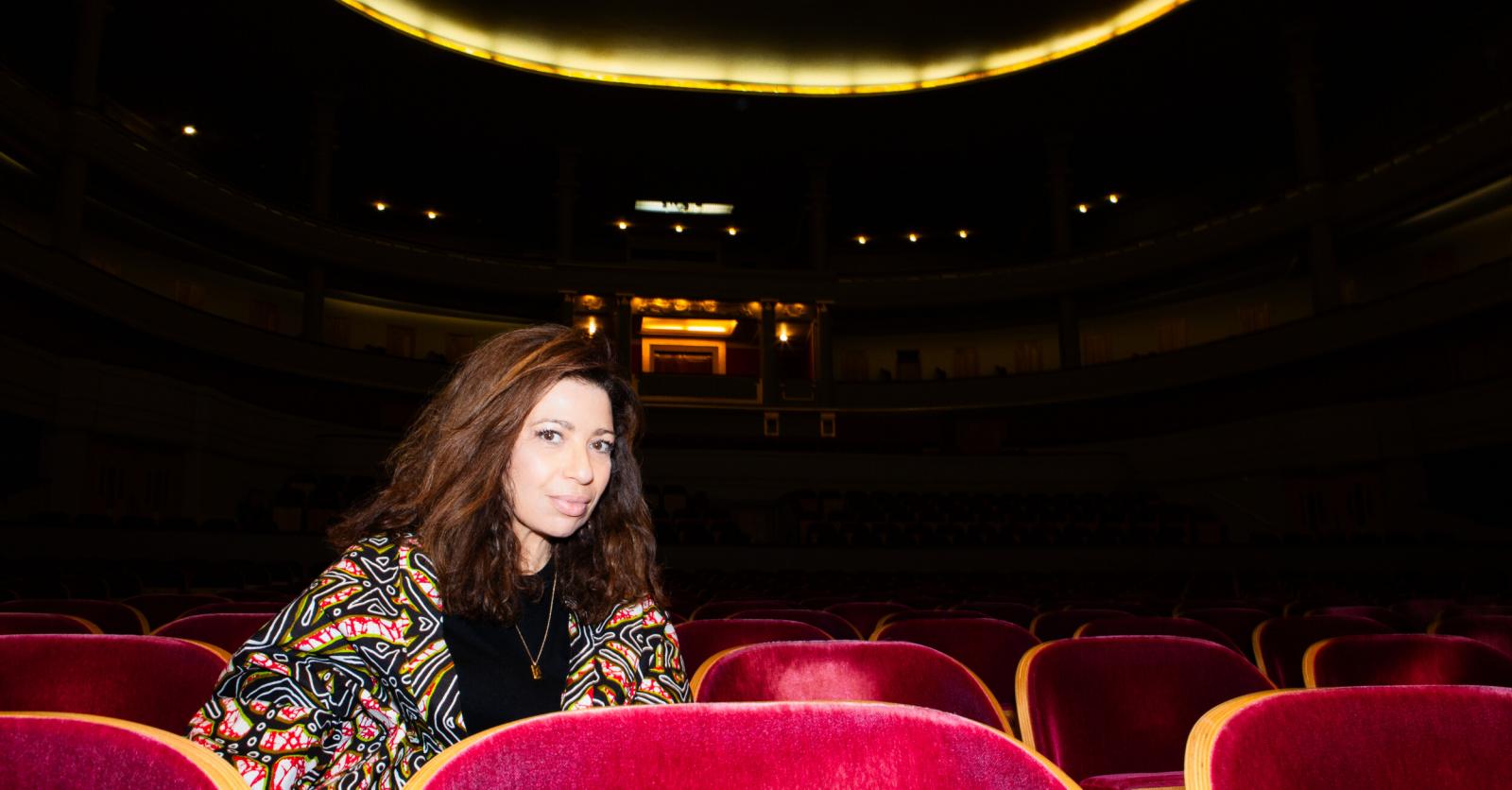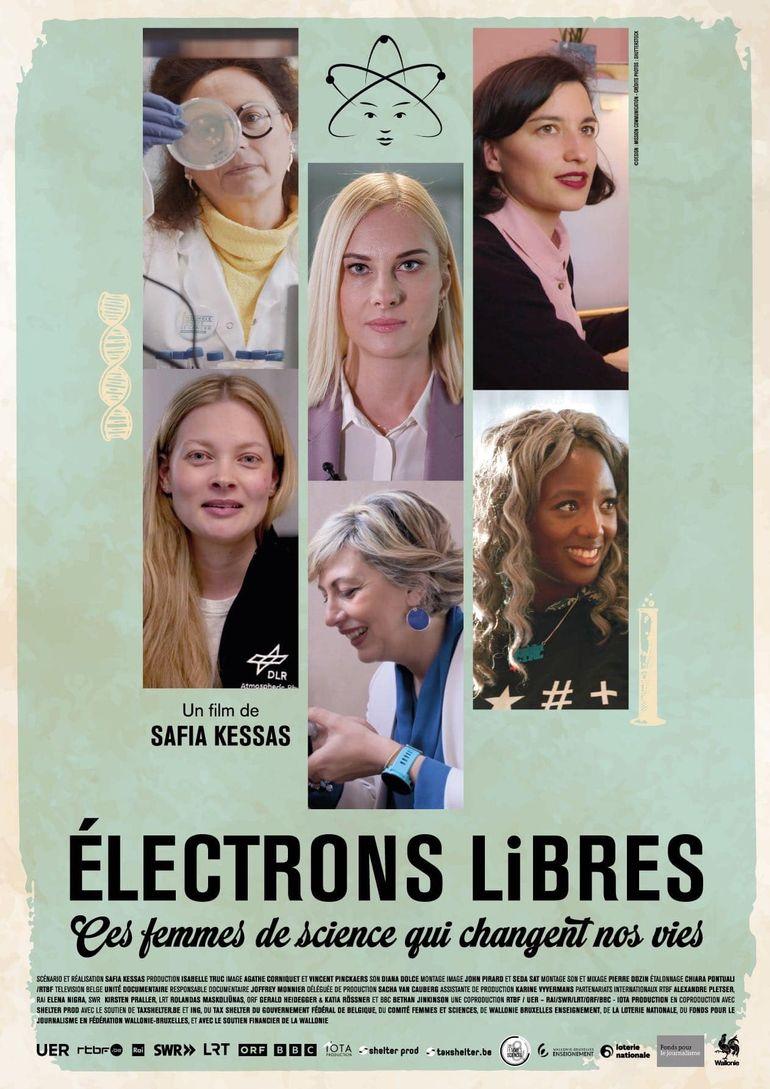
Safia Kassas signs a documentary about women in the field of science
Journalist Safia Kassas, who runs RTBF's feminist platform Les Grenades, has signed a new documentary on the place of women in science. He reveals himself to us in 7 words.
diversity
When we come from diversity, we tend to be conservative. My parents, Al-Tayeb and Aziza, left Kabylie for Belgium, where they were renamed with European first names. I am the youngest of five children. They passed on to me and my four siblings the need to not stand out.
Being diverse invites you to remain in the shadows. But I wanted to go against that and prove my legitimacy and not apologize for anything. Being a journalist was not part of the rules of social capital I inherited. So I came to the media on one mission after another, after starting my career in the international relations sector.
art
Art is an antidote to darkness. Collaborate with Bozar (Editor's note: Safia joined the team of writers and thinkers in January that runs the foundation's major interviews) and it's a magical interlude that nourishes me.
I have very eclectic tastes, ranging from the surreal – which we can appreciate in February during a major exhibition Just don't laugh. Surrealism in Belgium -For live art. But whatever the medium, art is a window to contemplation that allows you to recharge your batteries.
It invites us to work toward a form of interiority in a world that never stops questioning us. Art is a place where we do not need to explain ourselves, where we can simply be touched, in a form of solitude.


Vision
Intimacy is political. It is women who bear society's collective mistakes. From the problems of daycare settings to elderly care, they fill the gaps in socially abandoned spaces, at the expense of their personal development.
From childhood, they are taught how to take care of others and stand aside. with Women of scienceI want to give them the place they deserve. Highlighting profiles of women that are accessible to everyone, not just superwomen who succeed at everything.
As for the idea of sisterhood, I prefer the idea of solidarity, which involves making visible all women who do not have the opportunity to be seen in the light, whatever their age and background.
identification
Paying attention to the labels people place on you means accepting the other's narrative. It has been said of me that I “represent diversity”. But also that I was “too white”…the responsibility for these comments does not lie with me. It goes to its owners, and they are the ones who must be asked about it.
Once we are a little visible, others see it as an invitation to express their frustrations and fears. But I know that my identity is multiple. And that there is only one person who can define it: me.
“Women will always be ‘too much’ for society.”
kidding
Humor is a demanding discipline. Life is just a big play, and should not be taken too seriously. Humor is a way to put things back in their place. Besides, the best compliment anyone can give me is to tell me I'm funny.
If the person in front of me realizes this, it means we have gone beyond the formalities we can do without. Even if being feminine and fun isn't always easy, even today.
The movie in brief
They are researchers, mathematicians, technology experts, or engineers. It is the so-called “female” profiles that this documentary aims to highlight in the four corners of Europe. It tells about the paths they took to get where they are.
Against the backdrop of these success stories, this documentary also evokes the erasure of women who preceded them in the history of scientific progress. Because the numbers are there and they are amazing. Only two out of five scientists and engineers are women.
Less than 30% of researchers worldwide are women. In the United States, the proportion of women taking computer and information science courses has decreased by 10% since 1990.
For Safia Kassas, it is time to ask the right questions: Why are female scientists so often forgotten, or even denied their discoveries? Does this historical erasure of women still resonate in the careers of female scientists today?
How will these women remain in the history of science and inventions that will change our lives? Answers to discover in the gallery of images that make up the documentary.
Stereotype
Stereotypes are descriptive and directive. They say what is obligatory for us and what is forbidden for us. It is important to position yourself in the world by taking this reality into account: it obviously increases the mental load. But it also allows you to know how you will be perceived, and avoid a series of potential pitfalls.
On the other hand, it is important to realize that as women, we will always be “too much” for society: too fat, too thin, too young, too old… when we realize this, and the fact that we do not need to be validated by Anyone, it's insanely liberating.
moving in
There is no greater heritage than transportation. I like this sentence from the writer Frantz Fanon: “Each generation must, in relative obscurity, confront its mission, fulfill it or betray it.”
We are all part of the continuum, in terms of the old and the new and the whether or not pomegranate Or the documentary podcast dedicated to my family, Bassem Safia, I guarantee the silent transmission of speech. I would like people to remember me as someone who allowed people who felt more legitimate to tell their story or get started.
The program “Free Electrons, These Women in Science Who Are Changing Our Lives” will be broadcast on Trois on February 12, on the occasion of the United Nations Day of Women and Girls in Science.
Read also: In science, gender stereotypes have consequences

“Organizer. Social media geek. General communicator. Bacon scholar. Proud pop culture trailblazer.”
